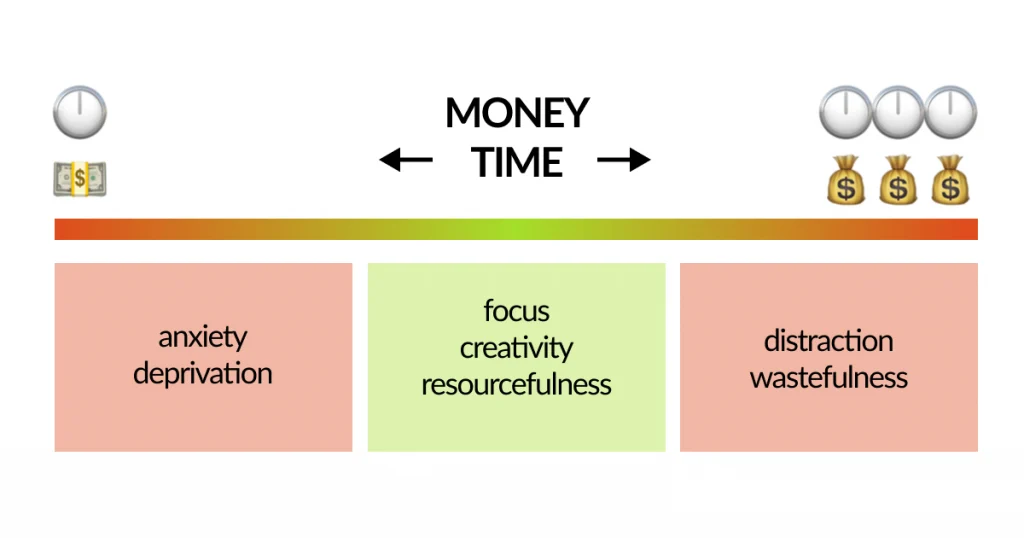
To an extent, having more resources is better. Having more time (i.e. from not having to work a day job or look after children) allows you to devote more attention and energy towards your endeavours. Similarly, having more money allows you to allocate more resources (i.e. by getting the best coaches or outsourcing tasks not in your specialty) to any project.
But past a certain point, having more leads to laziness, waste and complacency rather than accomplishment.
Parkinson’s Law – why having less time is better
If you’re given a month to finish a project, you’ll likely finish it on the last day of the month. Similarly, if you were only given 24 hours, you’d still likely finish at the last hour. Regardless of the size and scope of the project, you’ll take as much time to finish it as you’re given.
This phenomenon is explained by Parkinson’s Law:
Work expands so as to fill the time available for its completion.
There’s a reason for this. As deadlines – whether real or artificially imposed by us – approach, we tend to focus more on getting the task done to a passable degree. However, when we have an excessive amount of time to complete something, we focus on how we can get the task done perfectly. Rather than focusing on the end goal, we anxiously focus on the best process for achieving the perfect outcome.
Metaphorically, the further the deadline is, the more time we spend proverbially sharpening our axe and less time actually chopping the tree. Of course, sharpening our axes is important. But past a certain point, it becomes a form of procrastination and laziness. We avoid doing the important, but painful tasks by focusing on the unimportant.
So, the full-time employee with only 10 hours per week to work on his side project will likely focus on things that they enjoy/produce profit while someone else without the commitments of a job or kids to look after may waste their time designing logos, buying t-shirts or reading books instead of executing.
Healthy time constraints – not too short to cause overwhelming stress and not too long to cause procrastination – force us to focus on only the important; a critical ingredient for success and productivity.
Creativity and resourcefulness – why having less money is better
In 2018, space company BlueOrigin, realizing it was lagging far behind its competitors, conducted an analysis of its more accomplished rival SpaceX to determine the reason for their differences in effectiveness.
The analysis revealed that cost constraints were one of the key reasons for SpaceX’s success.
SpaceX viewed costs as something to ruthlessly minimize/operate within while BlueOrigin treated them as insignificant compared to the main goal (getting to space). This led to SpaceX innovating in the manufacturing and supply chain processes just to survive while BlueOrigin, as one executive admitted, got “kind of lazy compared to SpaceX”.
SpaceX only had enough money to focus on the things that really mattered; they were willing to purchase “good enough” parts that cost less and build reusable rockets in-house to avoid waste. On the other hand, BlueOrigin, with their bloated budget, threw their money away trying to buy the best parts and hire the best people at the expense of developing creative, resourceful solutions to their problems. In effect, they simply became a private NASA (which is the worst of both government and private organizations) while SpaceX became… SpaceX.
While having a lot of money ensures you’re never at risk of financial ruin, it insulates you from the hunger, focus and constraints needed to innovate and focus on the important. The price of being too “safe” is being complacent, wasteful and ineffective.
The key then lies in forming the right constraints so that you focus only on the important tasks and develop the creativity and resourcefulness needed to succeed. Having too little or too much time and money prevents this from happening. You don’t want to be starving and you don’t want to be stuffed/glutted. Having enough – no more and no less – is how you’ll best find success.